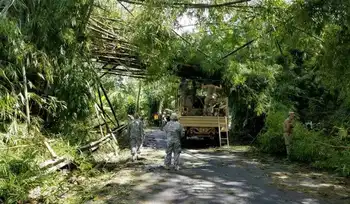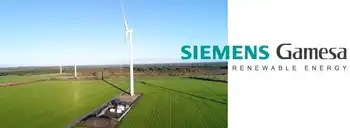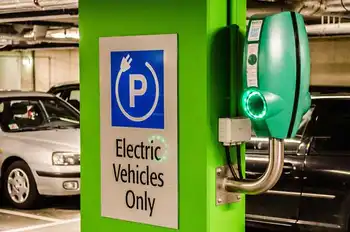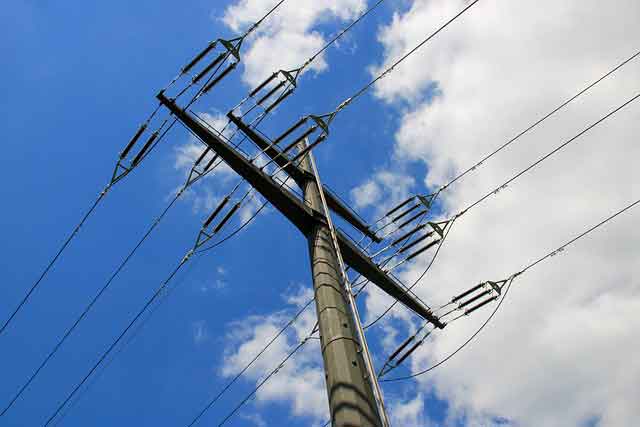Chinese clean energy subsidies illegal: union
GENEVA, SWITZERLAND - The United Steelworkers union plans to file a legal case with the Obama administration, accusing China of violating World Trade Organization rules by subsidizing exports of clean energy equipment, the unionÂ’s president and his advisers said.
The filing, more than 5,000 pages long and 18 inches thick, contends that the central government in Beijing and ChinaÂ’s provincial governments have used land grants, low-interest loans and dozens of other measures that violate WTO rules.
The union says the violations have helped Chinese companies expand their share of the world market for wind turbines, solar panels, nuclear power plants and other clean energy equipment, at the expense of jobs in the United States and elsewhere. The filing asks the Obama administration to begin formal proceedings at the WTO in Geneva to force China to repeal the subsidies.
“Unless China’s policies are urgently addressed, the U.S. may never get a fair shot at making the green technologies of the future,” the filing says.
Trade lawyers in Washington have been saying for months that ChinaÂ’s export subsidies for clean energy were so extensive that sooner or later, they expected a trade case to be filed. But multinational companies and trade associations in the clean energy business, as in many other industries, have been wary of doing so, fearing Chinese officialsÂ’ reputation for retaliating against joint ventures in their country and potentially denying market access to any company that takes sides against China.
With clean energy a stated priority of the Obama administration, as a jobs generator and for environmental reasons, the union says it hopes to gain support for its case by injecting the trade issue into the autumn Congressional campaigns.
It is filing the case under a 1974 American trade law that sets an initial deadline of 45 days for the administration to respond, which would be Oct. 24, a week and a half before the elections. The administration is allowed under the law to announce that it is extending the deadline — although any such delay could have political ramifications just before the elections.
“Once we file the case, we’re going to take it to the rest of the public,” said Leo W. Gerard, president of the 850,000-member Steelworkers union. “We’re going to mobilize around this.”
The filing of the trade case comes at a time of mounting trade and currency frictions with China. China is expected to announce that in August it ran another especially large trade surplus, possibly exceeding $25 billion.
President Obama imposed steep tariffs a year ago on tire imports from China, a decision that China is itself now challenging before a WTO panel, which is expected to give an initial ruling this month. The Commerce Department has separately granted dozens of requests to impose tariffs on very narrow categories of imports from China, like steel wire strands for pre-stressed concrete, after finding evidence that they were subsidized, or dumped, in the American market.
But special tariffs and other import restrictions still cover less than 3 percent of American imports from China. Unions and many Congressional Democrats have contended that the administration should be more assertive in forcing China to honor previous free trade commitments. But the United States government has long depended on companies to gather commercial information for trade cases, which companies have been hesitant to do.
China’s manufacture of solar panels, wind power turbines and other clean energy products — with the strong support of its government, through land grants and low-interest loans — has turned that nation into the global leader in those markets. China has more than one million jobs in all clean energy industries combined.
Meanwhile, American and other Western manufacturers of solar and wind power equipment have struggled to compete. Some American clean energy companies have scaled back production and laid off workers, while moving operations to China.
Mr. Obama called in his State of the Union address in January for the United States to become a leader in green energy instead of relinquishing the industry to foreign competitors, including China. But China continues to gain market share in practically every category of clean energy technologies, including solar panels and high-speed trains.
“This has the potential to be the tipping point on whether there can be long-term economic renewal in America,” Mr. Gerard said.
The United Steelworkers union represents employees in a wide range of energy-related jobs, including manufacturers who make the steel for wind turbine towers and nuclear reactors, and glassworkers who make solar panels and various kinds of incandescent and halogen light bulbs. The union also represents workers involved in the assembly of wind turbine towers and those who make gears, valves, engines and other components of clean energy equipment. All those job categories have had increased competition from China and other countries in recent years.
Another big American union, the International Brotherhood of Electrical Workers, with more than 700,000 members, is also involved in the installation of many clean energy systems, although the Steelworkers have not invited it or other unions to participate in their case.
The Chinese mission to the WTO, part of ChinaÂ’s commerce ministry, declined to respond to a series of faxed questions on whether China subsidizes clean energy exports.
ChinaÂ’s commerce ministry in Beijing has not responded to similar questions The Times first submitted in early June.
Chinese energy-policy makers, though, have said that developing a strong energy industry is a national priority that contributes to Chinese energy security. They say China is helping to address global warming by rapidly increasing its output of renewable energy equipment.
Besides Chinese government assistance to clean energy exporters in the form of free or discounted land for manufacturing plants and low-cost loans, the Steelworkers say China has broken WTO rules by tightly restricting the export of so-called rare earth elements needed for the manufacture of wind turbines, solar panels and energy-saving compact fluorescent bulbs.
The filing also accuses the Chinese government of forcing foreign clean energy companies to license their technology to local partners as a condition of entry to the Chinese market.
Premier trade law firms in Washington like Dewey LeBoeuf have been gathering extensive files since early spring in preparation for possible cases by the clean energy industry.
In the 1980s, many big American companies like Kodak and industrial groups like the semiconductor industry were willing to give legal backing and financial support for trade cases against Japan, when it was still an ascending industrial power. But these days, when facing China, multinationals have been reluctant to file similar cases.
The difference is that China, unlike Japan in the Â’80s, has encouraged the opening of many foreign-owned factories, making multinationals loath to file trade cases that could alienate Chinese officials and make it harder to do business there.
One of the world’s largest manufacturers of solar panels, SolarWorld of Germany, is an exception in that it is willing to criticize China. It has not moved its European or American operations to China — at least not yet — because the company has a corporate philosophy of manufacturing solar panels in the markets where it sells them.
“China is cordoning off its own solar market to fend off international competition while arming its industry with bottomless piles of subsidies and boundless lines of credit,” said Frank A. Asbeck, the chairman and chief executive of SolarWorld.
The German solar industry association has retained a law firm to review whether to file a trade case against Chinese exporters of solar panels, said Mr. Asbeck, a member of the associationÂ’s board.
In the United States, the solar industry has been largely quiet on trade actions and has not retained a law firm to advise it on the feasibility of a trade case.
So while there have been months of back-channel discussions in the United States among lawyers, administration officials and corporate executives about ChinaÂ’s clean energy policies, those discussions have not led to the filing of any trade cases.
Section 301 of the 1974 trade law, the provision cited by the steelworkersÂ’ union, gives legal standing to unions as well as corporations to file trade cases. The law provided the legal basis for threats of unilateral American trade restrictions in many confrontations with Japan and South Korea through the 1980s and early 1990s.
Currently, the Steelworkers is one of the few big unions with the legal resources to challenge China — and it has nothing to fear but the loss of further jobs in the United States.
Stewart & Stewart, a Washington law firm known for filing antidumping cases at the Commerce Department, prepared the legal brief for the union. The unionÂ’s trade strategist for the case is Michael R. Wessel, best known as the trade adviser for many years to the former House Democratic leader Richard A. Gephardt, who ran for president in 1988 on a platform calling for a more assertive American trade strategy.
Related News

New Rules for a Future Puerto Rico Microgrid Landscape
PUERTO RICO - The Puerto Rico Energy Commission unveiled 29 pages of proposed regulations last week for future microgrid installations on the island.
The regulations, which are now open for 30 days of public comment, synthesized pages of responses received after a November 10 call for recommendations. Commission chair José Román Morales said it’s the most interest the not-yet four-year-old commission has received during a public rulemaking process.
The goal was to sketch a clearer outline for a tricky-to-define concept -- the term "microgrid" can refer to many types of generation islanded from the central grid -- as more developers eye installations…




